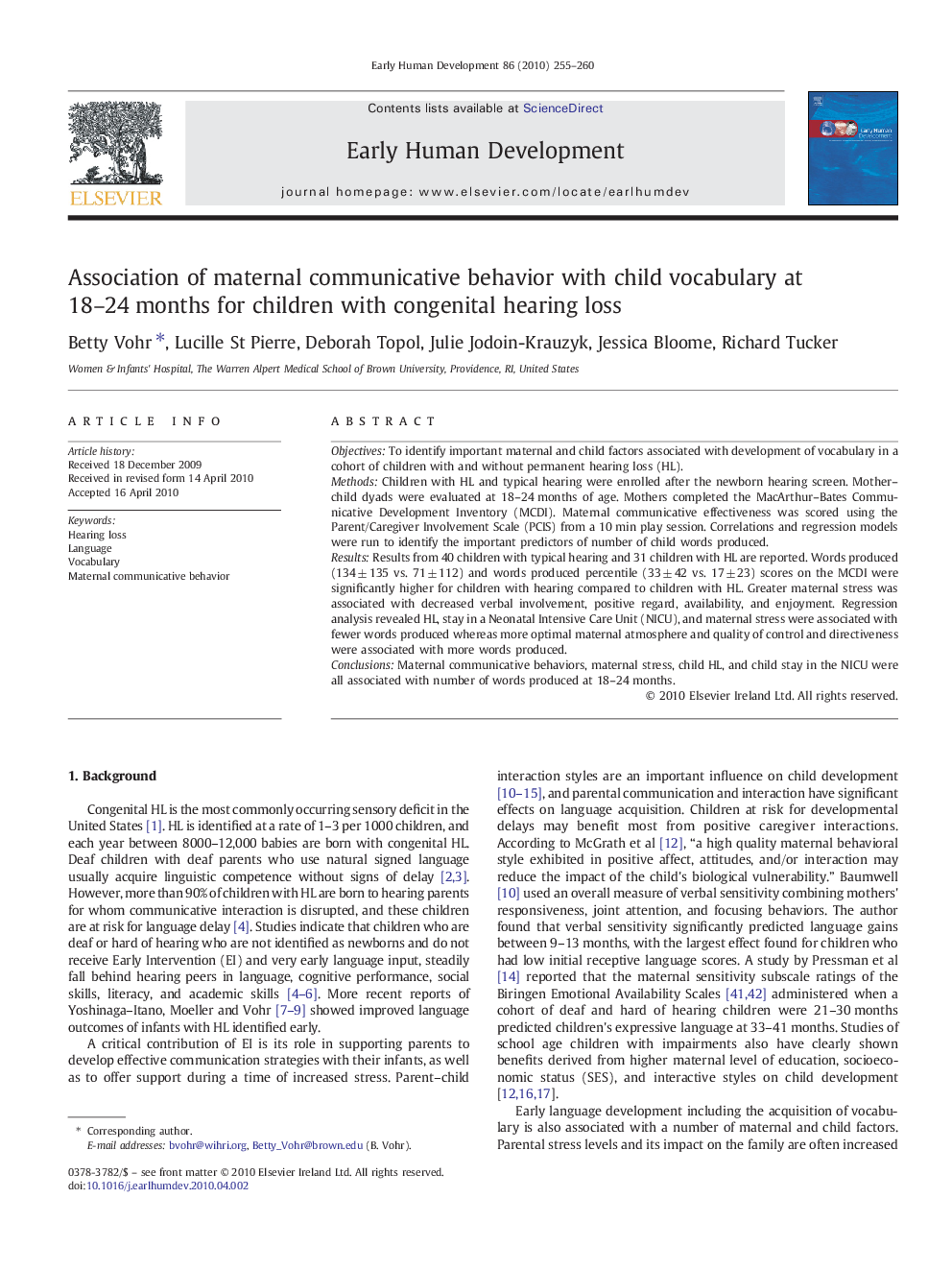| Article ID | Journal | Published Year | Pages | File Type |
|---|---|---|---|---|
| 3918464 | Early Human Development | 2010 | 6 Pages |
ObjectivesTo identify important maternal and child factors associated with development of vocabulary in a cohort of children with and without permanent hearing loss (HL).MethodsChildren with HL and typical hearing were enrolled after the newborn hearing screen. Mother–child dyads were evaluated at 18–24 months of age. Mothers completed the MacArthur–Bates Communicative Development Inventory (MCDI). Maternal communicative effectiveness was scored using the Parent/Caregiver Involvement Scale (PCIS) from a 10 min play session. Correlations and regression models were run to identify the important predictors of number of child words produced.ResultsResults from 40 children with typical hearing and 31 children with HL are reported. Words produced (134 ± 135 vs. 71 ± 112) and words produced percentile (33 ± 42 vs. 17 ± 23) scores on the MCDI were significantly higher for children with hearing compared to children with HL. Greater maternal stress was associated with decreased verbal involvement, positive regard, availability, and enjoyment. Regression analysis revealed HL, stay in a Neonatal Intensive Care Unit (NICU), and maternal stress were associated with fewer words produced whereas more optimal maternal atmosphere and quality of control and directiveness were associated with more words produced.ConclusionsMaternal communicative behaviors, maternal stress, child HL, and child stay in the NICU were all associated with number of words produced at 18–24 months.
